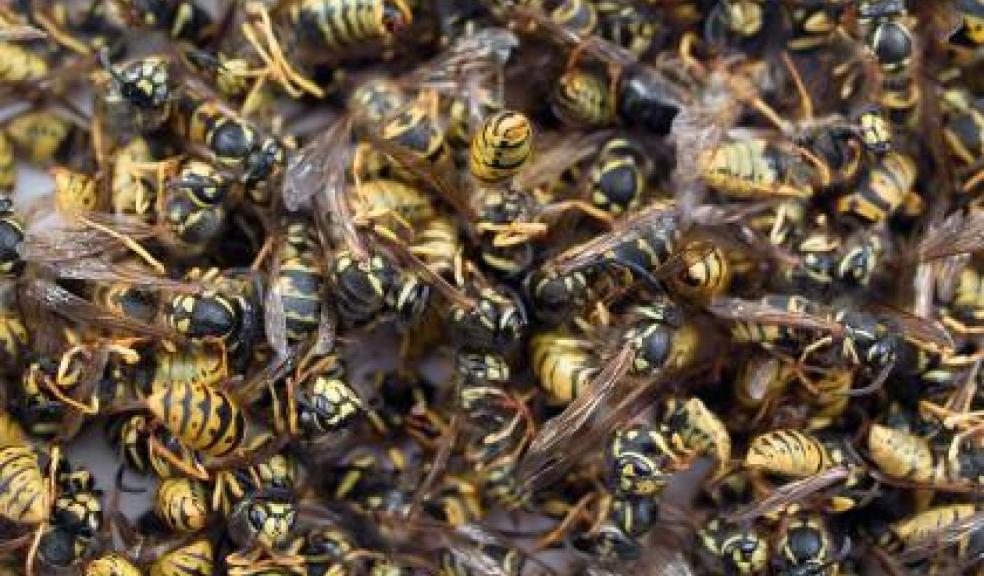
UK set to be besieged by swarms of wasps
Britain is ‘under attack’ from swarms of winged creatures.
Large numbers of airborne common black garden ants have been spotted everywhere this summer and now; thousands of wasps are also set to come out in record numbers for the next few weeks.
Following a huge uplift in sales of insect repellents, Wyevale Garden Centres is forecasting September to be an insect battleground for UK gardens. Britain’s summer of insect invasion has paved the way for a 300 per cent year on year rise in sales of Ant control products. Plus, wasp control products peaked last week with an increase of 180 per cent year on year.
The sales increases have been driven by a late season and a favourable weather pattern - hot and dry in June and July.
Wasps, in particular the ‘worker’ variety, will be very active at this time of year. As the weather cools, the queens go into hibernation to get ready for building a new nest the following spring and the worker wasps become very active. However, a hot start to the summer caused a bigger increase in its population, prompting a steady sales growth in wasp control products over the past four weeks.
Flying ants are also still being reported in record numbers as they continue their unexpectedly late activity, bugging besieged Britons across the country. According to experts, the yearly Flying Ant Day was between 31st July and 2nd August - when the insects gather in massive numbers to reproduce over a few days, or weeks. But the ants don't appear to have got the memo and are still out in force.
Moreover, these winged creatures seem to have encouraged the common garden spider out of hiding – keen for a hearty meal!
Duncan Mclean, Buyer for Garden Nourish and Control at Wyevale Garden Centres says: “It is definitely a bumper year for insects, and homeowners can expect the ‘invasion’ to continue for the next few weeks. It’s very likely you will see plenty of wasps around, as they have become more active recently. People should be aware of them, although they are part of the balance of nature, as the temperature drops, wasps become more sluggish and aggressive. As for garden spiders - we have also spotted more numbers of these, not great news for the arachnophobes amongst us, but buoyant numbers of the eight-legged creatures are great for pest consumption in gardens across the country.”
Want to protect your garden?
Flying ants do little damage to plants or gardens, except by disturbing soil around plant roots and depositing it on the surface during their nest building activities. This can be a nuisance on lawns and where low-growing plants are being buried by excavated soil. But they actually play an important role in the ecosystem - they recycle nutrients and aerate the soil, feed on pests, including other ants, and are also an important source of food for birds. Worker ants on the other hand will protect aphids (greenfly, blackfly and whitefly) which feed on roses, vegetables, shrubs and fruit trees. Wasps will sting but they also eat insects that many people consider to be pests.
Top tips to win the battle over these winged creatures:
- Use an insecticidal product, which is labelled for the right use.
- For the organic gardeners out there, citronella is an effective deterrent against wasps and biting beasties whilst providing a fresh scent. Citronella is a naturally occurring insect repellent which has a grassy/floral smell and is made specifically for outdoor use. Choose from a wide range of citronella products at Wyevale Garden Centres including our bestselling citronella candle in terracotta dish (£5.99), tea lights (from £3.99 for a pack on 24) and flares (from £4.99).
- Do not plant fruit trees too close to your house; these trees attract wasps.
- Wasp traps are easy and safe to use but should be used away from where you eat food.
- Gardeners should also encourage natural predators such as birds into their garden to help keep insect infestations, like flying ants, down.











